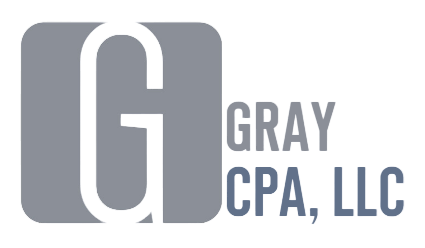Breaking Down an IRS Audit…and How to Prevent One
There are many misconceptions about what an IRS audit involves. If asked what an IRS audit is, most taxpayers and even business owners may describe dramatic scenes of an office raid by IRS personnel. In reality, it is quite rare that the IRS will conduct an in-person audit.
In breaking down an IRS audit, it is important to know what an audit is and how to prevent one.
What is an audit?
An audit is simply a review of financial accounts. The IRS system is prompted to conduct an audit if:
You have returns that fall outside of normal patterns
Your tax return is affiliated with another taxpayer’s tax return that was flagged
Through random selection
During tax planning, your tax advisor will likely let you know if you are practicing anything that could potentially spark an audit being conducted.
How are audits performed?
In determining how to prevent an IRS audit, whether you are a taxpayer, business owner, or both, you should be aware of the ways that an audit can be performed. This can aid in your diligence during tax planning.
In breaking down an IRS audit, it can be handled in any of the following three methods:
Line-by-Line Audit - This is where taxpayers are chosen randomly and each line on their tax return is examined in detail. This type of audit is mainly to discover what scenarios will trigger future audits.
Correspondence Audit - This involves a written request (either email or physical mail) from the IRS for additional information or documents. It is usually caused by a calculation error on your tax return or an omission of income.
Office Audit - This is an in-person interview at an IRS office. It is highly recommended to bring along your tax advisor to this meeting.
How do you decrease your chances of an audit?
Your tax advisor can be indispensable to prepare you during tax planning. However, in breaking down an IRS audit, it is crucial to know what you can do to decrease your chances of being audited and how to prevent an audit altogether.
Checks and Balances
Taking a few extra minutes to double check that there are no minor errors on your tax return can prevent an audit or even a sizable tax debt. If there is a calculation error or omission, the IRS is more likely to begin looking into your case. This also means ensuring that all of your financial records are accurate.
Remain Compliant
The difference between a smooth tax season and being suspected of tax fraud is staying in compliance with IRS regulations. Claiming proper exemptions and valid deductions can decrease your likelihood of being audited. What may seem like a normal occurrence of filing your tax returns late could also create a red flag to the IRS.
Remain Constant
In order to know how to prevent an IRS audit, it is perhaps simplest to remember: stay consistent. This is concerning the accounting method that is used for your business. Your tax advisor can identify which method you utilize: accrual accounting or cash basis. Regardless of which approach your business takes, it is crucial that you use only one throughout the year. Businesses that simultaneously switch between the two are more likely to be under the IRS’ radar.
Report Everything
During tax planning, it is imperative to ensure that you are recording all of your income. While breaking down a tax audit, one may be performed if the IRS can prove that you are not recording income on your tax return, regardless of the source, when it has been reported by other institutions or businesses. This can appear as an underpayment of taxes, which will very likely cause the IRS to flag you or your business.
Who should I consult about my audit chances?
If you are still uncertain about how to prevent a tax audit, it is always recommended to speak with your tax advisor. They will instruct you during tax planning on the ways that a taxpayer or business owner can receive penalties and consequent fines, for making an error or missing a deadline.
Furthermore, in breaking down a tax audit, these tax professionals can guide you in keeping accurate financial records and having separate business and personal accounts. Another widely overlooked mistake that business owners make, particularly small startups, is having incorrect books and commingling personal and business expenses.
Summary
It is safe to say that not many people would welcome an IRS audit. Therefore, it would be best practice to maintain correct financial records, file and pay your taxes on time, and report all income generated during the year. These simple yet effective steps can reduce the likelihood of your personal assets or business being audited by the IRS.
If you do find yourself in the middle of an audit, it is recommended that you seek support from a tax advisor who is well versed in these circumstances.
